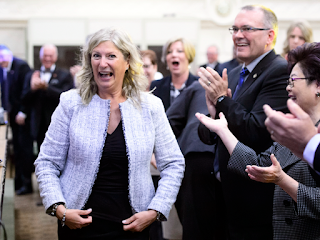Historians talking in Toronto

Friends of this blog in Toronto may want to know about the Yorkminster Park Speakers Series , which covers a wide range of topics, but includes a significant number of historians most seasons, including Jack Granatstein later this week, Randall Hansen in February, and Patrice Dutil in March. Update, same day : Speaking of historians speaking in Toronto: the Beth Tzedec Synagogue presents Allan Levine November 13 . Allan will be launching Seeking the Fabled City: The Canadian Jewish Experience . From the McClelland & Stewart website: Seeking the Fabled City is a story that unfolds over 250 years--from the decade after the conquest of New France in 1759, when small numbers of Sephardic Jews of Spanish and Portuguese descent arrived in British North America, through the great wave of Russian and Eastern European Jewish immigration at the turn of the twentieth century, to the present....












